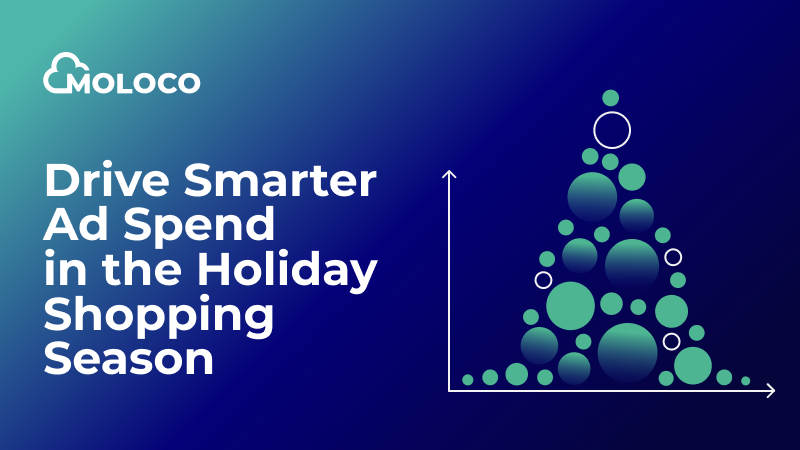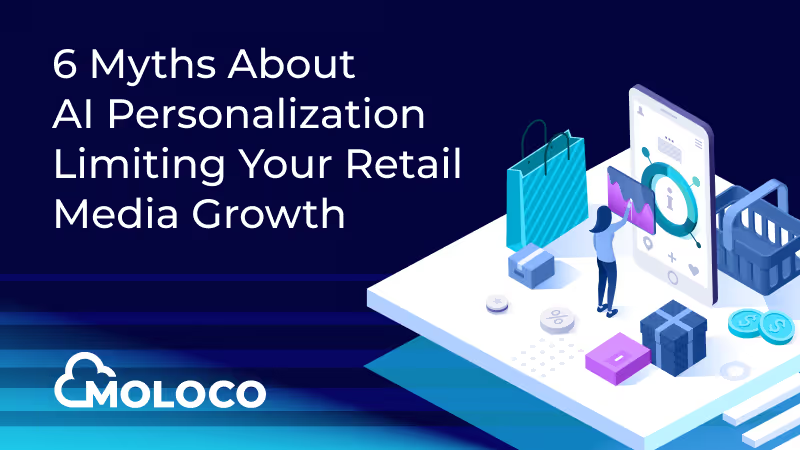Blog Article
Listen to most experts at retail media networks (RMN) and you’d think RMN growth is dead in the water without the latest trending growth channels. These include offsite ads, connected TV (CTV), and in-store media. While all three are key tools in helping retailers own the full marketing funnel, improve profit margins, and diversify revenue streams, none are the panacea that the trade presses and marketing thought leaders make it out to be.
If your RMN’s orientation is growth, then onsite retail media ads — across your owned-and-operated properties — deserve closer attention. Contrary to hot takes about perceived limits in supply or inventory, onsite retail media advertising is poised to drive over 80% of retail media ad spending for years to come, according to eMarketer.
Let’s take a closer look at how to maximize growth on your most valuable media asset.
For retailers and marketers, the benefits of onsite retail media ads are clear and unignorable.
Onsite retail media ads have the unique advantage of engaging consumers who are already in shopping mode. While search engines found success with a new way to reach high-intent browsers at scale, retail media enables marketers to follow consumers all the way to cart and checkout, delivering ads at key decisive moments, on the most important commerce destinations. As a result, onsite ads across retailer and marketplace sites typically drive a significantly higher return on advertising spend (ROAS) than offsite placements, which reach lower-intent audiences across external publisher sites and social media platforms.
Offsite and CTV placements for retail media ads are fast-growing inventory opportunities. But, these channels also carry much higher delivery costs, including technological infrastructure to serve and track ads across multiple “walled garden” platforms, and expenses and fees to third-party platforms or ad networks. Onsite ads, on the other hand, run on your owned sites and are extremely cost-efficient, with margins often climbing as high as 90 percent —3-4x higher than offsite, as reported in Retail Dive.
Placed within the context of retailers’ own websites, onsite retail media ads provide an inherently brand-safe and verifiable environment, free from the risks common in any social media platform filled with user-generated content. Marketers benefit from guaranteed premium placements and brand protection, retailers maintain the integrity of their shopping experience through pre-approved “native” ad formats, and users enjoy tailored product discovery and recommendations based on first-party data.
To develop closer ties with advertisers, RMNs have rightly prioritized offsite and in-store media to better support full-funnel outcomes and cross-channel activations. But, when it comes to dollars spent and RMNs’ bottom line, onsite far and away remains the most critical business driver.
As RMN ad spend climbs toward a $100 billion by 2027, as estimated by eMarketer, onsite search will drive over 50% of growth, with another 15-20% coming from onsite display and video. Offsite is still on track to account for a sizable 15-20% of growth, followed by Streaming TV at 10%, and in-store at 1%.

These onsite retail media ads industry data contradict the notion that RMNs are “tapped out” of onsite inventory and growth opportunities. They also run contrary to the successful growth stories of today’s most mature media networks.
Retail media network leaders Amazon and Walmart drive the vast majority of media revenue from onsite retail media ads, and these high-margin pools have an outsized impact on overall profitability. As noted in our previous analysis, 68% of Amazon’s annual profits come from digital advertising, as do 12% of Walmart’s annual margin – the equivalent of 1,270 brick-and-mortar stores.
Leading RMNs continue to grow onsite media revenues even without sizable jumps in traffic. That’s because, in addition to scale and data, they tap into machine learning (ML) that automatically improves ad outcomes and real-time optimization. Through continuous improvement, ML unlocks substantial monetization gains from the same inventory, often 5x more than baseline page performance (according to internal sample data from Moloco).

The onsite retail media ads growth formula of Amazon and Walmart is replicable across retailers and marketplaces. These are some proven steps to maximize your success:
Align the best commerce media technology with your most important retail media assets. Adopt an onsite ads platform with advanced ML that includes real-time transformer models and maximizes use of your first-party data. This ensures relevant ads that are personalized for each user, and ads that are demonstrably profitable for advertisers.
Make it easy for any seller to become an advertiser with simple self-serve portals and automated campaign management. This expands your total addressable market (TAM) to include long-tail advertisers, and increases your onsite auction density, improving ad relevance and yield.
Rather than managing campaigns against keywords or bidding thresholds, look for ad partners that can support probabilistic auctions and outcomes-based targeting. Advertisers can set a target return on ad spend (ROAS) or cost per order (CPO) and let advanced ML models find the best paths to users.
While new channels like offsite, CTV, and in-store media expand retailers' advertising horizons, onsite inventory remains the cornerstone of RMN success. By investing in advanced ML, self-serve platforms, and outcomes-based campaigns, retailers can extract significantly more value from their digital properties. As the industry races toward $100 billion, the winning strategy is clear: maximize your most valuable media asset first.
 🚀 Moloco Commerce Media Helps eCommerce Capture the Holiday Traffic Surge 🎁
🚀 Moloco Commerce Media Helps eCommerce Capture the Holiday Traffic Surge 🎁The holiday shopping season brings a massive surge of high-intent traffic to e-commerce platforms. While this spike offers incredible opportunity, many advertising systems are too slow and static to capitalize fully on the fast-changing shopper behavior.

.avif) Beyond Last-Click: How We Prove Incremental ROAS in Retail Media
Beyond Last-Click: How We Prove Incremental ROAS in Retail MediaGhost bidding reveals true retail media ROI. See how AI-native incrementality testing delivers proven results from 253% to 1,609% incremental ROAS.

 6 Myths About AI Personalization Limiting Your Retail Media Growth
6 Myths About AI Personalization Limiting Your Retail Media GrowthDiscover the truth behind 6 AI personalization myths that are holding back your retail media growth - and how to maximize your performance.

.avif) The Commerce Media Ecosystem: Where Data, AI, and Ecommerce Shopping Converge
The Commerce Media Ecosystem: Where Data, AI, and Ecommerce Shopping ConvergeEverything you want to know about the Commerce Media Ecosystem. Learn how first-party data and AI is used to drive growth for suppliers, digital retailers, and consumers.

